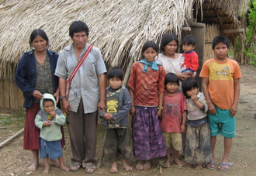For decades, consensus among psychologists has held that a group of five personality traits — or a slight variation thereof — universally define the structure of human personality.
Previous research conducted in more developed countries and across many cultures found strong support for what experts refer to as the “Big Five” — openness, conscientiousness, agreeableness, extraversion and neuroticism.
However, when UC Santa Barbara anthropologist Michael Gurven and his team studied the Tsimane, an isolated indigenous population in the Bolivian Amazon, they found not five broad dimensions of personality, but two — prosociality and industriousness.
Perhaps the Big Five aren’t so universal after all.
Much of Gurven and colleagues’ long-term research in Bolivia — spanning nearly two decades — offers other surprising and revealing examples that amplify the questions of what is universal and why. Perhaps what’s true for one culture cannot be extrapolated or mapped onto another.
And that’s exactly his point in a new paper published in the Proceedings of the National Academy of Sciences.
Related Link:
News Date:
Monday, November 5, 2018
November 8, 2018 - 9:26am







